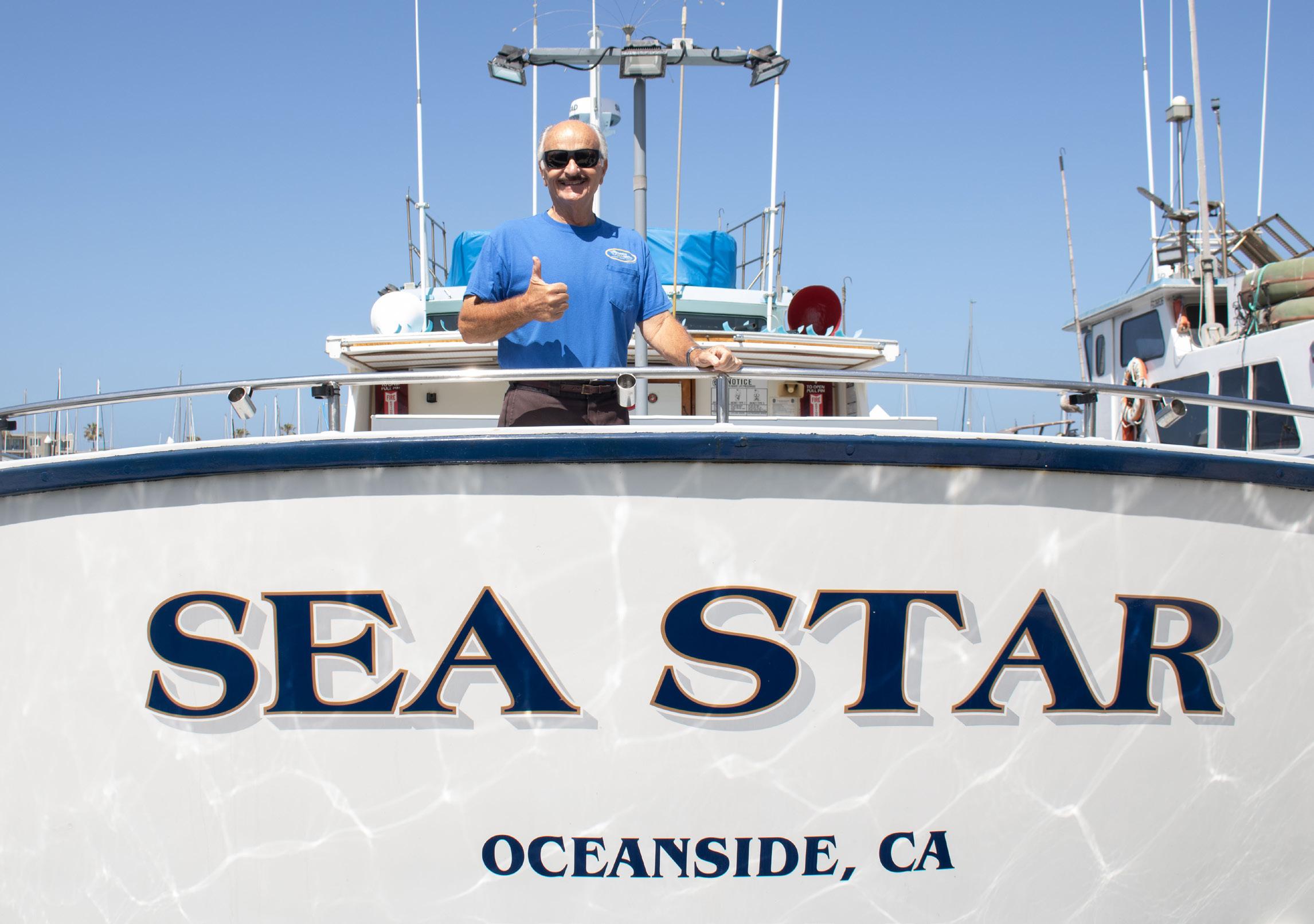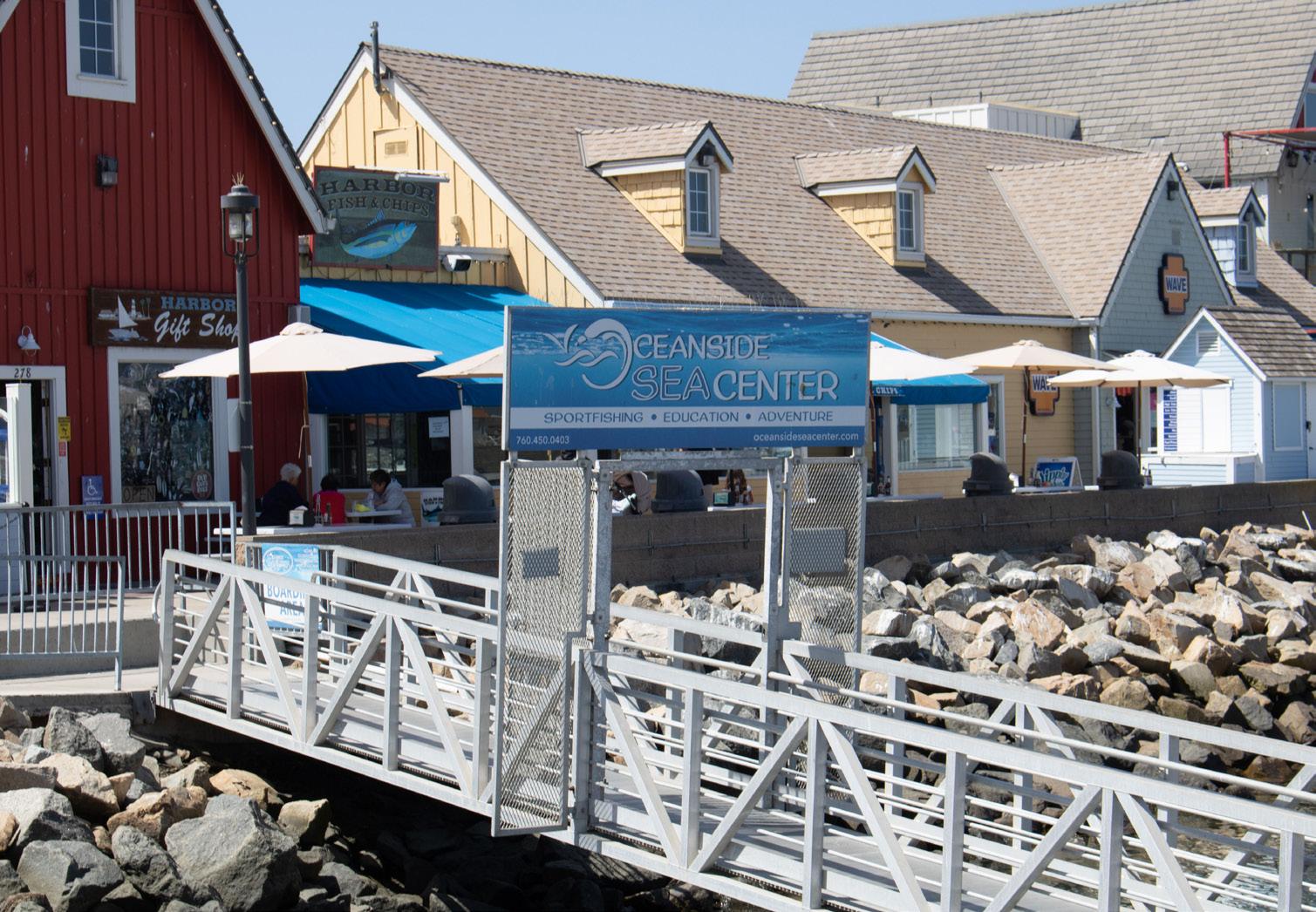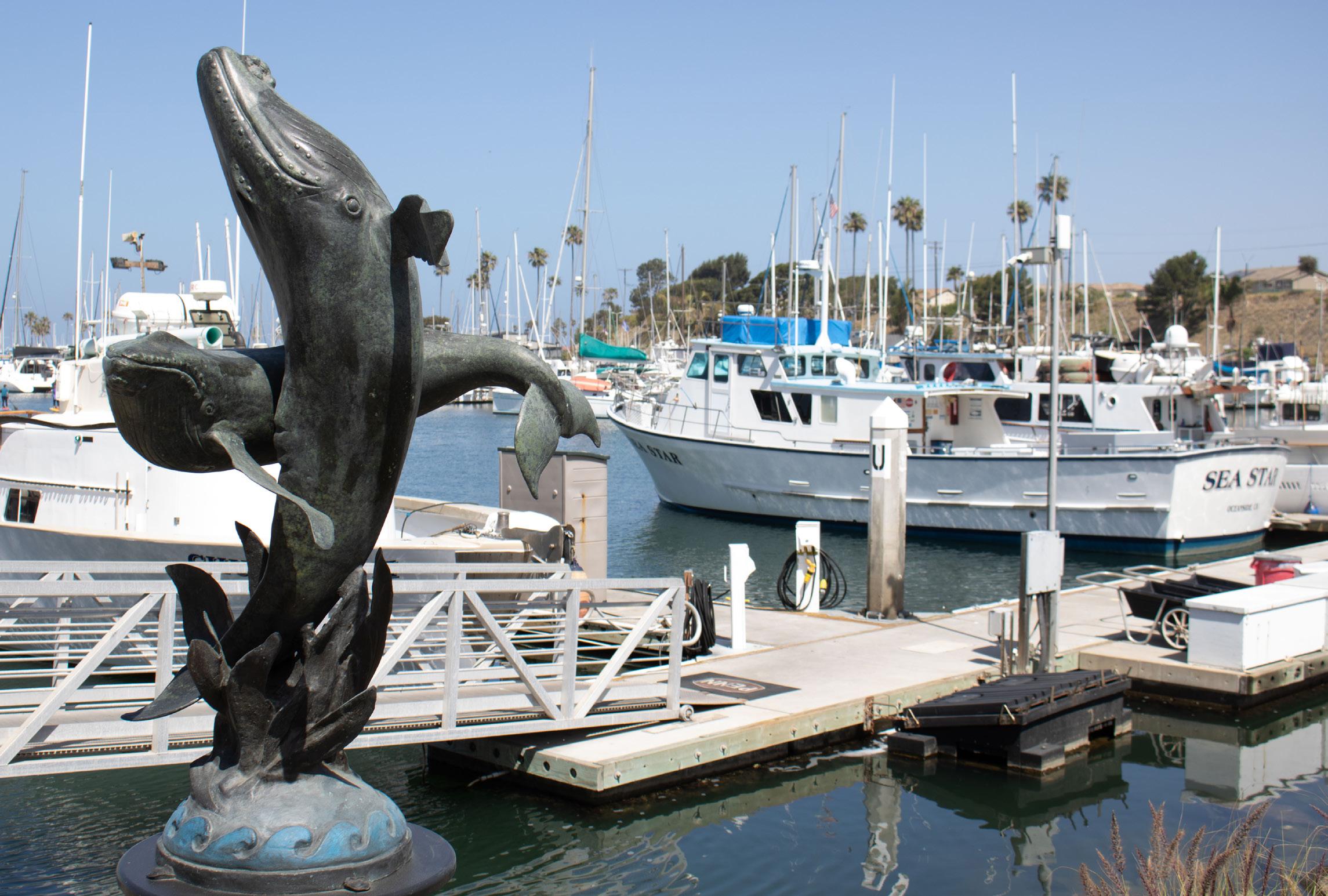
6 minute read
Sea Star Charters: Celebrating 40 Years
Capt. Joe Cacciola Celebrates 40-Year Anniversary with Sea Star Charters
Growing up on Long Island, Capt. Joe Cacciola’s love for the water started at an early age. Cacciola graduated from Villanova University, was commissioned in the Marine Corp as an Officer and in 1971 stationed at Camp Pendleton. His quarters were at Camp Del Mar located right next to the harbor, and he felt blessed to have such a beautiful view. While the Marine Corp brought him here, Cacciola decided to stay for Southern California’s great weather and Oceanside’s perks. At the time, Oceanside’s population size was much smaller meaning little to no traffic, easy beach access and overall affordable living. Cacciola landed himself a spot right on South Pacific Street where he stayed for 14 years. Cacciola looked for opportunities to stay in Oceanside after the Marine Corp. He attended graduate school and studied two years in counseling psychology. While in graduate school, Cacciola worked as a deckhand. He never ended up pursuing a job in counseling psychology. He worked as a crew member, eventually earning his captain’s license. In 1982, Cacciola purchased the Sea Star and started his own business. Working for other boat owners, Cacciola studied the fishing industry. Cacciola had a “fire in his belly” and his parents, having just retired, supported the entrepreneur. A true family-owned and operated business, Cacciola’s charter is unlike any other. He works tirelessly to maintain the boat’s appearance and the high-quality services offered abroad are personal and professional, earning him his respectable reputation in the community. With his many years of experience, Cacciola witnessed the industry change. When Cacciola first arrived,
Advertisement
Oceanside was still growing as a city. Boats were difficult to board, and many were lost in storms with no secure place to dock. Despite these difficulties, Cacciola saw the potential for Oceanside’s fishing industry. Years later, and with a new Landing Operator regulating and improving the Harbor, the fleet of boats grew and more locals partook in fishing activities. As the city grew, however, the industry changed. Locals were no longer the only interested clientele. Recreational activities competed with fishing and vacationers looking for an ocean experience became the new customer. Therefore, Cacciola learned the importance of evolving, adapting, and diversifying to remain successful in a very niche market.
For the first 15 years, Sea Star Charters focused on sport fishing. Cacciola then added whale and dolphin tours. In 1996, he started a floating science lab program bringing students abroad to collect samplings of sea life creatures. Sea Star Charters has now taken over 15,000 students out to sea. However, most important to Cacciola, are his sea burials. Over the past 10 years, this part of his business has significantly grown, averaging about 150 burials a year. However, Cacciola views this as an opportunity to serve his community and has folded in his educational background. Beginning with the initial phone call, Cacciola takes time to counsel the families through the entire process. The opportunity to show support to these families is something Cacciola holds close to his heart, having scattered both his grandmother and father at sea, and he is truly thankful to be able to serve the community in this fashion.
While his years in the industry have brought many wonderful memories, Cacciola has witnessed significant challenges as well. While agency regulations are consistent challenges, Cacciola specifically points to the effects of global warming and emission standards as the two biggest threats. Regarding these challenges, Cacciola had this to say: “There are some real challenges that affect not only our business, but residents in California. When we’re talking about the ocean, and you hear this all the time, “Climate Change”. Well, it’s real. I’ve seen it over my 50 years here. The ocean is a dynamic place and there are natural processes that are happening all the time. The abundance of water conditions, the water temperature, the weather in general, but you start to see things over decades that are not within that realm of being normal and there’s enough science to back it. We can see this climate change affecting the ocean. So, that’s a big challenge to us because we in the fishing industry, especially, we’re not so sure where we’re going to be in 10, 20, 30 years. As the water of the ocean warms there’s profound changes that can take place, and people say ‘Well, what’s one, two, three degrees?’ It’s a lot. The ocean is enormous. Covers 70% of our planet. For that much energy to be absorbed and to keep increasing, that’s a huge amount of change. Some organisms don’t adapt very well to higher water temperatures. But it also affects other things. Here locally I’ve experienced this loss of habitat, the giant kelp forest. They grow. They recede. But I’ve seen over the last 10 to 15 years, the kelp beds are not recovering the way they should. We’re down to probably 10–20% of the kelp that we used to have 50 years ago. When you lose that much habitat, then you wonder, ‘What’s happening to everything that lived there?’. Not only the fish, but vertebrates and some marine mammals depend on it. And that’s going to be a challenge. Climate change and loss of habitat. Then for the sport fishing industry in Southern California, the emission standards that the state and the federal government have. They’re going to get more stringent after each year and that’s a big challenge for these boats. We all want clean air. We want to reduce emissions. We strive to do that. But, right now there is a big push to go to tier 4 diesel


engines. That’s not even physically possible on a boat right now. That technology for boats doesn’t exist and there’s lots of reasons for that. That’s a huge challenge. I personally want to get the Sea Star out of diesel engines. I want to go straight to hydrogen. I want to go to 0 emissions. I want to have one of the first hydrogen powered vessel in California. There’s a couple of them now, a water taxi and a ferry up in the San Francisco Bay. But that’s where I want to go. My challenge is getting the funding through the state and maybe the federal government and use this as a demonstration that this can actually happen. So emissions, yea, that’s a big challenge. How we get to lower emissions to meet the higher standards, that’s going to be a challenge. But we’re actively engaged in that now.”
While Cacciola sees some threats to the industry, he remains excited about and thankful for all Sea Star Charters has done and continues to do for Oceanside. He believes Oceanside has done a terrific job redeveloping downtown, making the city a true coastal destination. Cacciola loves that while Oceanside has grown so much, it still has that smalltown appeal amongst its locals. He loves the personal relationships he’s built with his regulars. He loves when the boat is at the dock and he hears, “Hey, Capt. Joe!”. He loves the partnerships he’s built with the Oceanside Sea Center and the Pfleger Institute of Environmental Research (PIER). Currently, Cacciola is on a mission to bring public art into the Harbor. Thanks to Cacciola, the Harbor now has its first piece of public art, which he calls “Cetacean Celebration”. Donated by the Cacciola family, the bronze statue features two humpback whales and is located in front of the Oceanside Sea Center. Moving forward, Cacciola plans to continue to diversify his services focusing on increasing public education around marine life. With all the Sea Star has to offer and how the business has adapted to face very challenged head-on, Capt. Joe Cacciola has proven himself to be a pillar within Oceanside.
Sea Star Charters is located at 315 Harbor Dr S, Oceanside, CA 92054. Give Capt. Joe Cacciola a call at (760) 966-0111.


